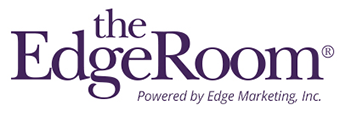ECFX, the leading provider of electronic court filing (ECF) notice management solutions, and Thomson Reuters, the world’s leading source of intelligent information, have joined forces to provide the legal industry’s first automated solution for downloading State and Federal ECF notice documents and saving them directly into Thomson Reuters HighQ or ProLaw®.
“The integration will give HighQ and ProLaw clients access to court documents within seconds of an ECF notice being received from State and Federal courts,” said Dan O’Day, ECFX Co-Founder and CEO. “Approximately 30 seconds after a notice arrives from the court, ECF Notice will profile and save documents into HighQ or ProLaw and deliver a customized email notification with PDF documents or links to the profiled documents.” Additionally, the integration will simplify linking court documents to the Westlaw Legal Calendaring Rules docket within ProLaw matters.
ECFX Notice is a state-of-the-art SaaS solution that connects the court notices to the appropriate matter or client workspace in HighQ and ProLaw. It will also store all ECF notices and documents in the cloud as part of its service.
The Thomson Reuters Legal Professionals Partner Program is designed to provide clients with state-of-the-art innovation to overcome unique challenges in the business and practice of law. Through the program, the integration between ECFX, HighQ, and ProLaw will eliminate the time-consuming task of manually profiling ECF notice documents. Litigation firms often process hundreds or thousands of court documents per week. On average, the manual process of downloading, profiling, storing, and distributing notices and documents takes 10-20 minutes per notice. ECFX Notice handles the entire process automatically, freeing up time for legal staff to utilize their knowledge and expertise to do work the firm’s clients value.
“We are excited to partner with Thomson Reuters market-leading products to strengthen our common commitment to improve the lives of our mutual customers,” said Dan O’Day.
ECFX
ECFX was founded by attorneys and technology experts with a single goal: to address unmet automation needs in the legal industry. We are committed to filling in the gaps in legal workflows with intelligently automated solutions that enable firms to save time, gain control, mitigate risk and improve visibility. Our premier product, ECFX Notice, automates the complex process of electronic court filing notice management—saving firms hundreds of hours a week to focus on the work their clients value. Visit www.goECFX.com for more information.
Thomson Reuters
Thomson Reuters is a leading provider of business information services. Our products include highly specialized information-enabled software and tools for legal, tax, accounting and compliance professionals combined with the world’s most global news service – Reuters. For more information on Thomson Reuters, visit tr.com and for the latest world news, reuters.com.




 Amy Juers of Edge Marketing joined a panel of marketing experts at Legalweek to share their respective experiences and advice on succeeding in the changing landscape in social media marketing. We were delighted to see a high level of interest and attendance by business development and marketing professionals from large and medium law firms, as well as service providers.
Amy Juers of Edge Marketing joined a panel of marketing experts at Legalweek to share their respective experiences and advice on succeeding in the changing landscape in social media marketing. We were delighted to see a high level of interest and attendance by business development and marketing professionals from large and medium law firms, as well as service providers.